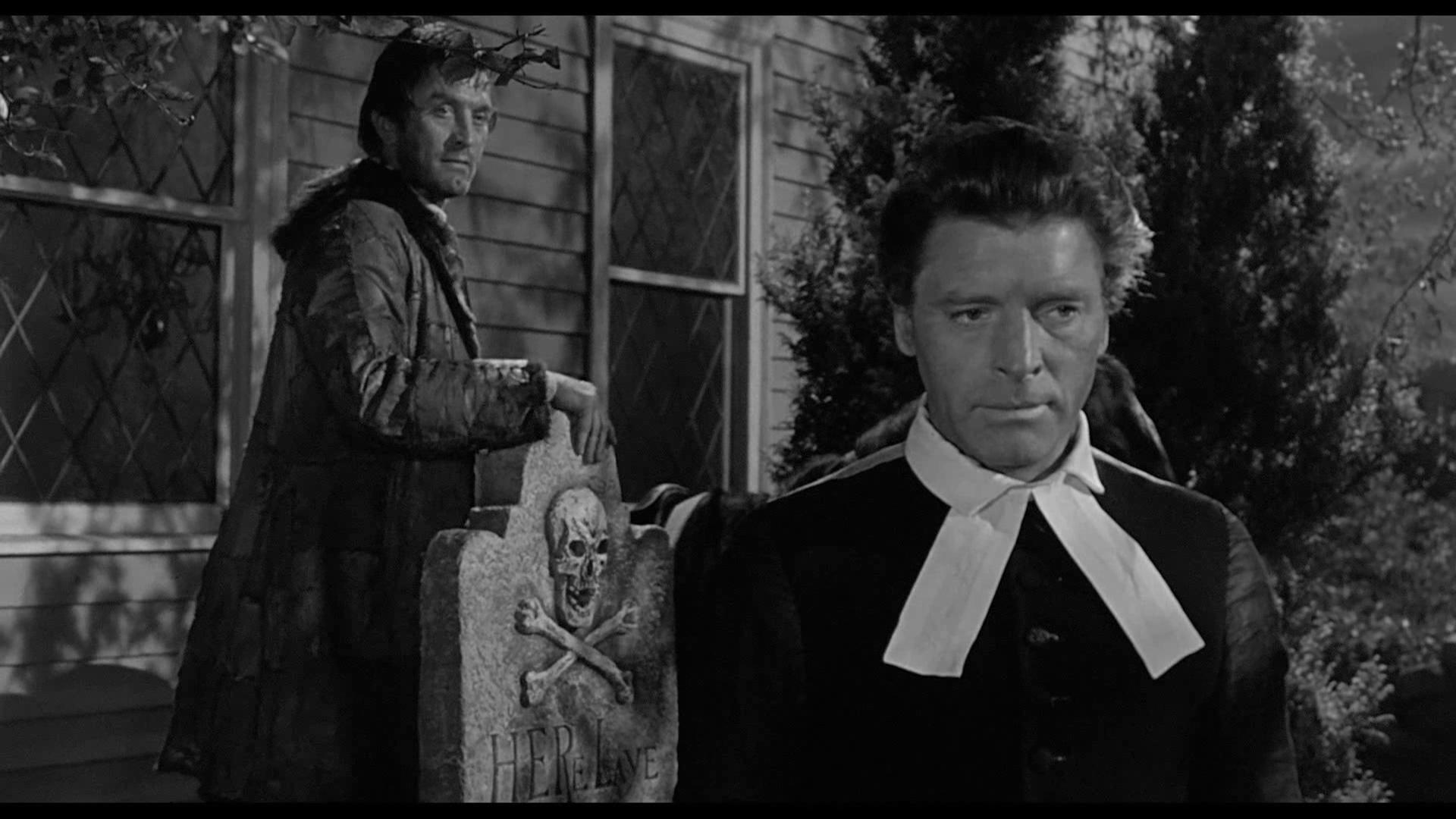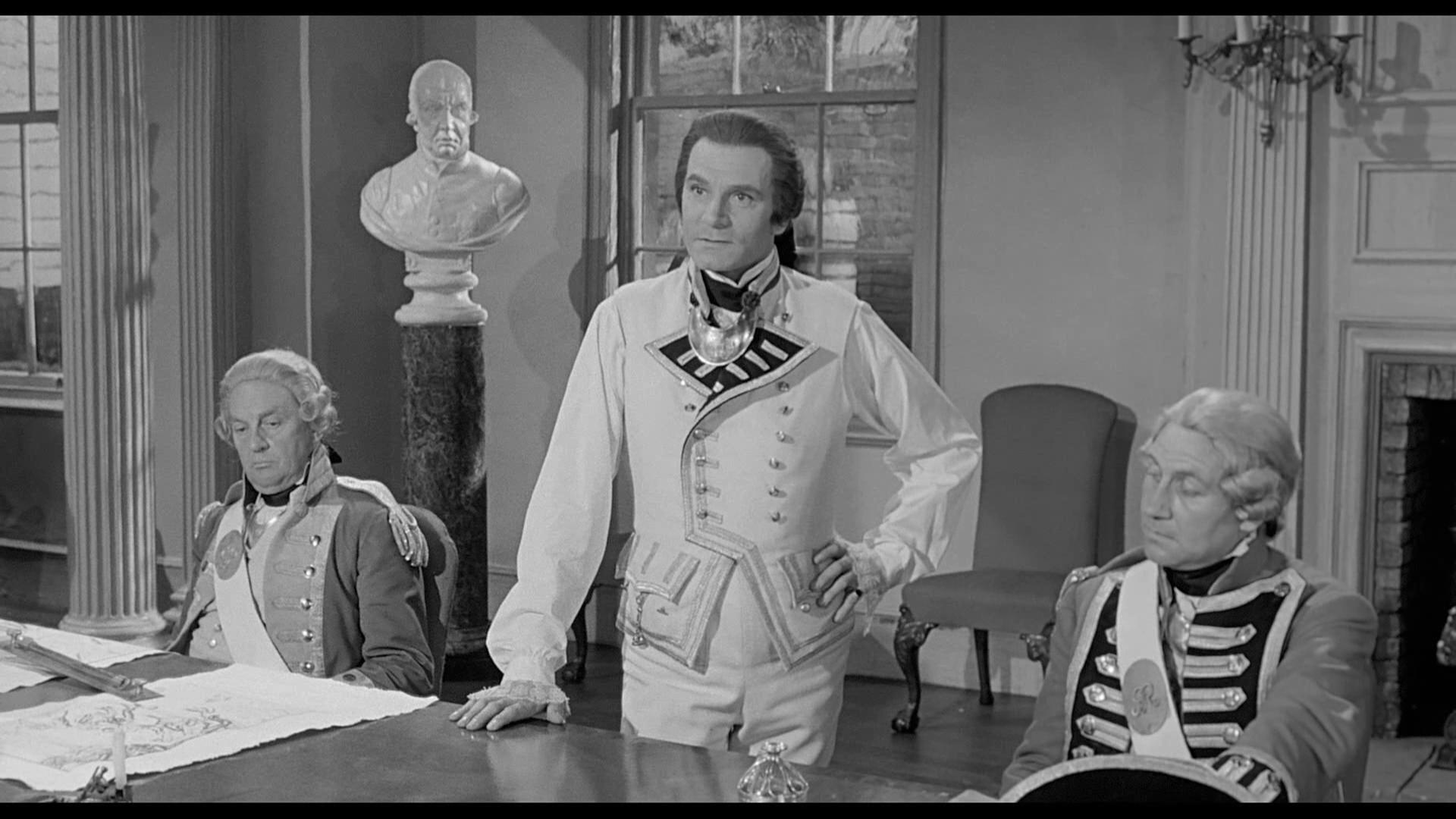The Devil's In The Details
I was recently watching The Devil's Disciple (1959) on TCM*, a not especially successful adaptation of the George Bernard Shaw play. In general, Shaw has not been well-served by the cinema. Yes, there was the 1930s film version of Pygmalion which most consider a triumph--but Shaw had his hand in the rewrite. Since then, while you could make a case for a title or two, most fall far short of how Shaw is best seen, in the theatre.
It was probably doomed from the start. Shaw himself recognized movies are a different art form. He was a voluble writer, and his plays are about the words. But movies can't be like plays, artificially stuck in a room for 45 minutes while the players talk. But if you take away the talk from Shaw, or try to rewrite him, you lose the Shavian and get something much worse.
I can see why stars/producers Kirk Douglas and Burt Lancaster wanted to do the film. Shaw's name would lend class (and the recent blockbuster My Fair Lady meant his stock was high) while at the same time this is his most action-packed play. Shaw wrote it as melodrama--almost a parody of melodrama--with every clichéd situation he could think of: the reading of the will, one man putting his life in danger by pretending to be another, the last-second rescue and so on
But still, they had to open it up, and that's where most of the problem is. As enjoyable a plot as the play has, it's not an adventure story, though the movie often tries to make it one. It's especially bad inventing action scenes for Burt Lancaster. The trouble is that Douglas gets to play Dick Dudgeon, the title character and clear lead. (Apparently the two stars flipped a coin.) So they beefed up Lancaster's role as the Reverend Anthony Anderson, and gave him scenes which simply don't play as well as the original Shaw, and, in fact, take away from what tension the plot has.
One thing that does work is Laurence Olivier as General Burgoyne. In the play, Burgoyne doesn't appear until the final act, but with his sly lines almost steals the show from Dudgeon. Olivier's take is perfect, and you can almost see the delight he takes in his wonderful dialogue (even though Olivier later claimed he was miserable during the film) while outclassing the American movie stars he's allegedly supporting. While he's on screen, you can see what might have been, if the film were done properly--or perhaps I should say if it were possible for a film to do it properly.
*The TCM introduction claimed Shaw didn't think much of the play, and, they said, he refused to stage it in London. This is ridiculous. At the time, Shaw was an unsuccessful playwright trying to establish himself, and wrote this work for a particular actor-manager in the West End--who was soon after stabbed to death. Shaw would have loved to get a production in London, but failed. And, in fact, The Devil's Disciple ended up being his first commercial success in Richard Mansfield's American production. This allowed him to quit journalism and make a living in the theatre. So TCM is way off. (They also claim, on their website, that because he wrote in the play's preface "The Devil's Disciple does not contain even a single passably novel incident" that this means he didn't like it. They're missing Shaw's love of paradox. As noted above--and the point Shaw is making--is that he took a pile of clichés, mixed them in a pot, and came up with something entertaining and original.)



0 Comments:
Post a Comment
<< Home